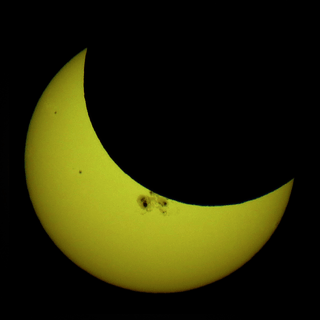Solar eclipse of May 11, 2097
A total solar eclipse will occur on May 11, 2097. A solar eclipse occurs when the Moon passes between Earth and the Sun, thereby totally or partly obscuring the image of the Sun for a viewer on Earth. A total solar eclipse occurs when the Moon's apparent diameter is larger than the Sun's, blocking all direct sunlight, turning day into darkness. Totality occurs in a narrow path across Earth's surface, with the partial solar eclipse visible over a surrounding region thousands of kilometres wide.
| Solar eclipse of May 11, 2097 | |
|---|---|
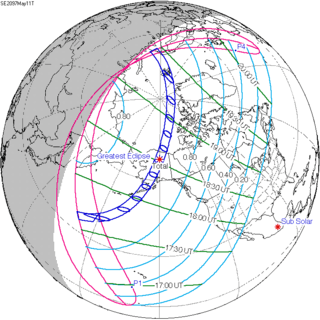 Map | |
| Type of eclipse | |
| Nature | Total |
| Gamma | 0.8516 |
| Magnitude | 1.0538 |
| Maximum eclipse | |
| Duration | 190 sec (3 m 10 s) |
| Coordinates | 67.4°N 149.5°W |
| Max. width of band | 339 km (211 mi) |
| Times (UTC) | |
| Greatest eclipse |
|
| References | |
| Saros | 149 (25 of 71) |
| Catalog # (SE5000) | 9726 |
Related eclipses
Solar eclipses 2094–2098
This eclipse is a member of a semester series. An eclipse in a semester series of solar eclipses repeats approximately every 177 days and 4 hours (a semester) at alternating nodes of the Moon's orbit.[1]
| 119 | June 13, 2094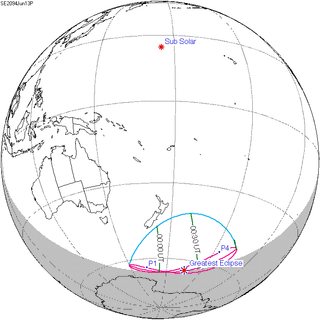 Partial |
124 | December 7, 2094 Partial |
| 129 | June 2, 2095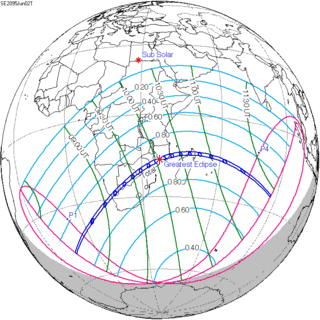 Total |
134 | November 27, 2095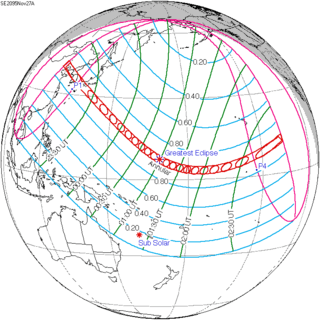 Annular |
| 139 | May 22, 2096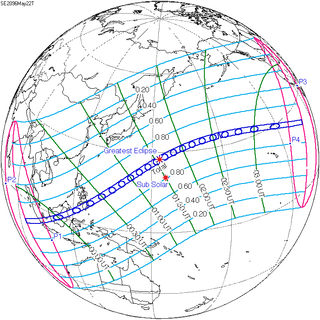 Total |
144 | November 15, 2096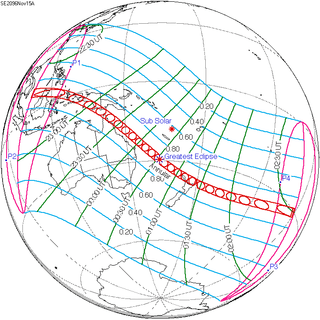 Annular |
| 149 | May 11, 2097 Total |
154 | November 4, 2097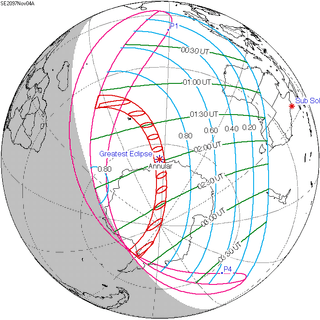 Annular |
| 164 | October 24, 2098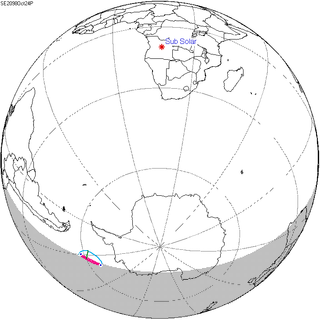 Partial |
Saros 149
Solar saros 149, repeating every about 18 years and 11 days, contains 71 events. The series started with a partial solar eclipse on August 21, 1664. It has total eclipses from April 9, 2043, to October 2, 2331. The series ends at member 71 as a partial eclipse on September 28, 2926. The longest total eclipse will be on July 17, 2205, at 4 minutes and 10 seconds.[2]
| Series members 15–25 occur between 1901 and 2100: | ||
|---|---|---|
| 15 | 16 | 17 |
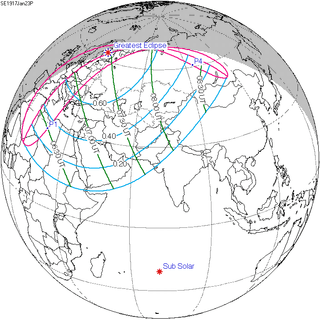 January 23, 1917 |
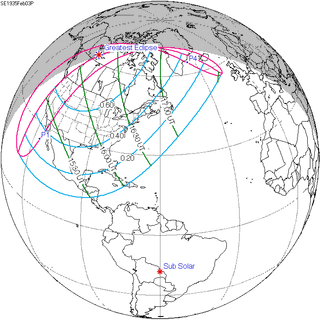 February 3, 1935 |
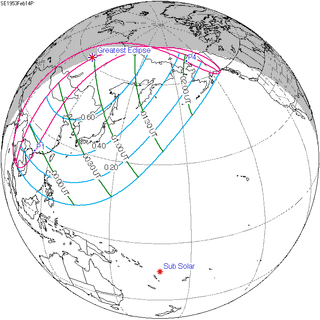 February 14, 1953 |
| 18 | 19 | 20 |
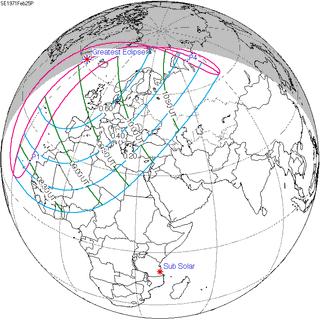 February 25, 1971 |
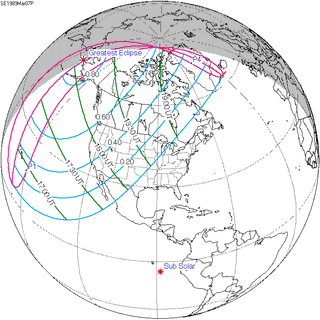 March 7, 1989 |
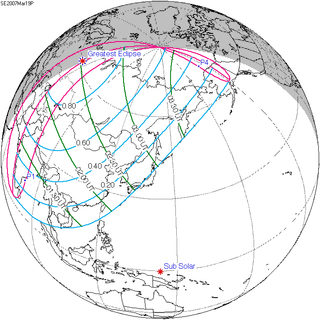 March 19, 2007 |
| 21 | 22 | 23 |
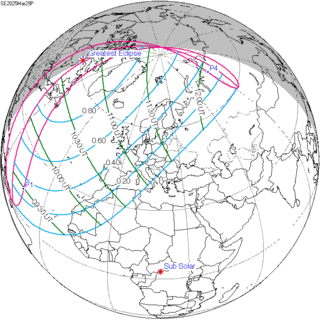 March 29, 2025 |
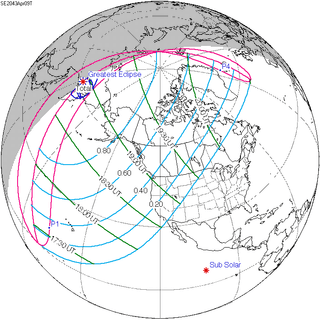 April 9, 2043 |
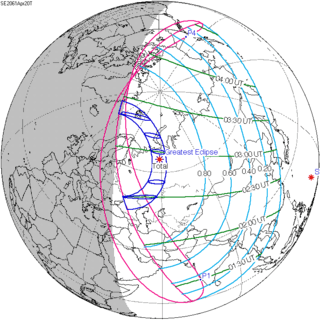 April 20, 2061 |
| 24 | 25 | |
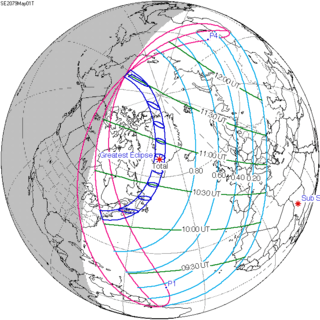 May 1, 2079 |
 May 11, 2097 | |
Notes
- van Gent, R.H. "Solar- and Lunar-Eclipse Predictions from Antiquity to the Present". A Catalogue of Eclipse Cycles. Utrecht University. Retrieved 6 October 2018.
- Saros Series Catalog of Solar Eclipses NASA Eclipse Web Site.
References
- Earth visibility chart and eclipse statistics Eclipse Predictions by Fred Espenak, NASA/GSFC
.jpg)
